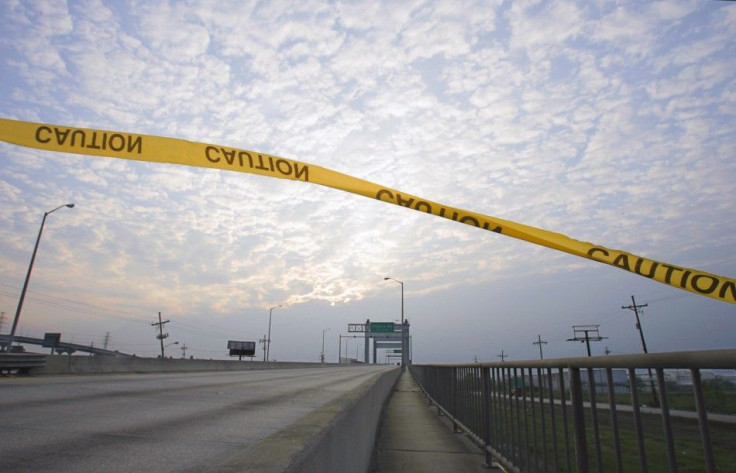Trial Begins for Cops Accused of Murder During Katrina

Nearly a week after the waters unleashed by Hurricane Katrina began devastating New Orleans, a group of police officers sped towards a bridge in the east of the city after receiving a call that other officers had come under fire there.
What happened when they arrived at Danziger Bridge is the subject of a trial beginning this week. Witnesses allege that the officers opened fire on unarmed civilians trying to cross the bridge, including shooting a mentally disabled man in the back and then kicking him as he lay dying. Two people died and four were wounded that day.
Five officers will go on trial this week for their roles in the shooting, including charges that they planted a gun and engaged in other acts to make the people fired upon appear guilty.
The investigation has already produced guilty pleas from five other police officers who admitted to trying to cover up what transpired -- Michael Hunter, a former police officer who was on the bridge, has said that the shootings constitute an unjustified use of force. Former Lt. Michael Lohman also pled guilty to obstruction of justice in trying to disguise legally unjustified police actions.
The Danziger Bridge shooting has come to crystallize a sense among many of New Orleans' black residents that they were victimized and abandoned in the chaos of Katrina.
It is a particularly egregious example of allegations of widespread corruption in the city's police department -- another trial found officers guilty of killing a man named Henry Glover and the burning his corpse to destroy the evidence.
They put doubt in my mind about the police officers because, if they did that to those people, what they are going to do to us? Berthe Delonde, whose house borders the bridge, told The Independent.
Assistant District Attorney Christopher Bowman, speaking to Agence France-Presse, said the perceptions that the police department is discriminatory or corrupt play out in the legal system constantly.
We see the effects of that on a daily basis in criminal court, he said. When we question jurors, there are jurors that say they don't trust the police.
© Copyright IBTimes 2024. All rights reserved.











